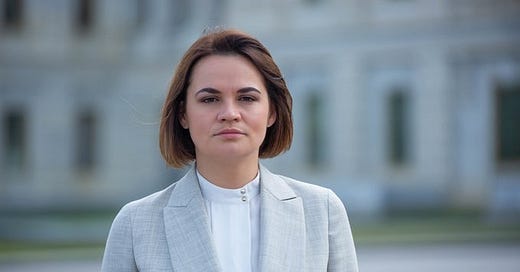In Belarus, jail sentences for critics and opposition leader in exile, and other stories
#WomenLead (Issue 137): Your weekly round-up on women in politics
Hello, and welcome to Issue 137!
In this week’s edition, we bring you updates from Kenya, Nigeria, and the USA, and the spotlight is on Belarus. In case you missed last week’s edition, you can read it here.



